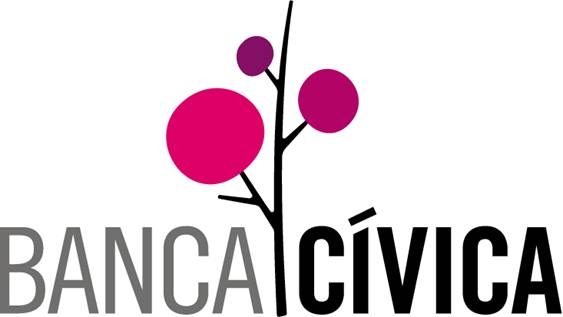AGE EQUALITY POLICY STATEMENT AGE EQUALITY POLICY STATEMENT 1
EQUALITY MONITORING FORM WHY WE NEED THIS05 PROMOTING INCLUSION EQUALITY AND VALUING DIVERSITY POLICY ALONGSIDE
11 OF EQUAL VALUE POVERTY AND INEQUALITY IN THE
1511 GENDER EQUALITY ACT NICHT LÖSCHEN BITTE
18 THE IMPACT OF GOVERNMENT POLICIES ON INCOME INEQUALITY
2 AUGUST 2007 STRENGTHENING GENDER EQUALITY PROGRAMMING IN HUMANITARIAN
AGE EQUALITY POLICY STATEMENT
|
Age Equality Policy Statement |
|
Age Equality Policy Statement
|
1 |
Context |
This policy statement sets out how Doncaster College will work towards the promotion of age equality in all of its activities. It outlines how the College will ensure that age discrimination is challenged and eliminated through legislation and good practice.
This policy statement needs to be viewed in the context of the Equality Act 2010 and the Public Sector Equality Duty 2011, and the extent of protection it provides in the context of age equality - a protected characteristic.
This policy needs to be read in conjunction with the College’s:
Annual Inclusion Report
Equality and Diversity Strategy
Anti Harassment and Anti Bullying Policy (Staff and Students)
Widening Participation Strategy
Equality and Diversity Policy
Strategic Equality and Diversity Action Plan 2015-18
Community Involvement Strategy.
|
2 |
Definition |
The Equality Act 2010 makes discrimination on the grounds of age unlawful in employment, education and training.
Age related discrimination generally consists of unequal treatment against people based on their chronological age. This can include unfair treatment linked to a specific age or within an age range. It can also include categories such as ‘old’, ‘young’ or the perceived age of a person that someone may be associated with, for example, the carer of an older person.
The Office for National Statistics, in its latest projections, indicates that nearly a third of the workforce will be over 50 by 2020. 29% of adults have reported experience of age related discrimination. This makes age discrimination the most prevalent form of discrimination in society today. There are some 890,000 people over 50 currently out of work who are actively seeking employment, but who are prevented from gaining employment by negative age related views held in society.
Age equality means securing equality of participation in our society for people of every age. We need to ensure the correct balance between equal citizenship, equality of outcome, equality of opportunity and respect for difference.
Age discrimination occurs when a person is treated less favourably for a reason relating to his or her age and that treatment is not justified on the basis of the requirement of the role.
Equality means ensuring that everyone is treated equally i.e. in the case of students, that all students have the same right of access to resources. Consequently to ensure equality of opportunity, individuals / groups may be treated differently.
Diversity is recognising that individuals and groups of people are different and that it is important to value and celebrate difference.
Direct Discrimination is treating someone less favourably than they would treat others because of a protected characteristic.
[The individual does not need to possess the protected characteristic.]
Indirect Discrimination is where an employer/provider has a condition, rule, policy or practice that applies to everyone but particularly disadvantages people who have a protected characteristic. [It can be justified if it is proportionate means of achieving a legitimate aim]
Associative Discrimination is directed discrimination against someone who associates with another person that possesses a protected characteristic.
Perceptive Discrimination is direct discrimination against some one because they are thought (wrongly) to possess a protected characteristic.
Harassment is unwanted conduct related to a protected characteristic that has the purpose or effect of violating an employee’s dignity, or creating an intimidating, hostile, degrading, humiliating or offensive environment for that individual.
Victimisation is where an individual is subjected to a detriment because they make, or are suspected of making, or supporting a complaint or grievance under the Equality Act 2010. [No protection if a complaint has been maliciously made or supported an untrue complaint].
Third Party Discrimination protects employees who are harassed by clients, contractors of the employer/provider. An employer is liable if the conduct has occurred on at two previous occasions, is aware it had taken place and had not taken reasonable steps to prevent it occurring again.
|
3 |
Guiding Principles |
Doncaster College wishes to be recognised by the community as an organisation which provides good employment and educational opportunities for people of different ages and we wish individuals who apply to us as a student or an employee to know that they will receive fair treatment and be treated solely on their ability.
Therefore our policies aim to ensure that people of different ages receive treatment that is fair, equitable and consistent with their skills and abilities.
Doncaster College is fully committed to promoting equality of opportunity in all ages. All people have a right to equality of opportunity irrespective of their age.
Our strategies and overarching frameworks and practices are reviewed and impact assessed regularly to ensure they provide equality of opportunity through compliance with current legislation, good practice guidance and user feedback, with targets set for improvement through our Strategic Equality and Diversity Action Plan 2015-18.
Wherever possible the College will use Association of Colleges (AoC) good practice guidelines.
Doncaster College does not tolerate any prejudicial behaviour by any member of the College. The College has a zero tolerance to bullying, harassment and victimisation.
The College recognises that society has negative attitudes, myths and stereotypes about ageing, youth, older and younger persons. These negative attitudes and beliefs can lead to both younger and older people being economically and socially disadvantaged, marginalised and excluded.
|
4 |
Legislative Framework |
The College will operate within the legislative framework of the Equality Act 2010 and Public Sector Equality Duty 2011 and strive, where possible to go beyond legal compliance.
Within the Strategic Equality and Diversity Action Plan 2015-18 the College will take action to:
Eliminate discrimination based upon age that is unlawful under the Equality Act 2010
Promote equality between people of different ages
Eliminate harassment of people of different ages that is related to their age
Promote positive attitudes towards people of different ages
Encourage the participation of people of different ages in public life.
There is recognition that there is legal protection afforded to the protected characteristic of age equality.
The College is committed to ensure that it does not discriminate either directly or indirectly in the provision of goods, facilities, services or employment on the grounds of age equality.
Consequently, the College will not tolerate any forms of discrimination on the basis of age equality based upon:
Direct Discrimination
Indirect Discrimination
Associative Discrimination
Perceptive Discrimination
Indirect Discrimination
Harassment
Third Party Harassment
Victimisation.
The College recognises that the legislation makes it unlawful on the grounds of age to discriminate on the basis of:
A person’s actual age
A age that they are thought to have; or
An age of someone else with whom they are associated.
The College recognises that the Equality Act 2010 prohibits both direct and indirect discrimination on the grounds of age and extends protection in relation to associative, perceptive and third party harassment.
In relation to indirect and direct discrimination on the grounds of age and in line with the Equality Act 2010 the College recognises that it is capable of being justified if it is a proportionate means of achieving a legitimate aim.
The College supports good decision making by encouraging staff to understand how different people will be affected by their activities so that our policies and services are appropriate and acceptable to all and meet different people’s needs.

Originator:
Asst Principal Inclusion, Student Experience and Commercial
Developments Page
Last Reviewed Date: Aug 2017
Next Review Date: Aug 2018
2 MAXWELL POLL ON INEQUALITY AND CIVIC ENGAGEMENT 2004
5 INFORMAL CONSULTATION ON “STRATEGIES FOR GENDER EQUALITY IS
56 RESCUING JUSTICE FROM EQUALITY1 (SOCIAL PHILOSOPHY AND POLICY
Tags: equality policy, the equality, statement, policy, equality
- III ZJAZD RODZINY ANNY I MICHAŁA ANDRZEJEWSKICH STANICA WODNA
- SUCCESSION PLANNING PROGRAM POSITION EVALUATION FORM INSTRUCTIONS TO DEPARTMENT
- ISTARSKA ŽUPANIJA UPRAVNI ODJEL ZA POLJOPRIVREDU ŠUMARSTVO LOVSTVO RIBARSTVO
- ENERGY GLOBE FOUNDATION GMBH HESSENBERG 14 4814 NEUKIRCHEN
- SKILLS AND COMPETENCIES NEEDED TO SUCCEED IN TODAYS WORKPLACE
- REPUBLIKA HRVATSKA MINISTARSTVO ZNANOSTI OBRAZOVANJA I SPORTA GLAVA OSNOVNO
- „RZĄDOWY PROGRAM FUNDUSZ INICJATYW OBYWATELSKICH” „SPOŁECZEŃSTWEM
- UNEPCBDCBWSOIWAFR11ADD1 PAGE 0 CBD DISTR GENERAL UNEPCBDBCWSOIWAFR11ADD1 22 JANUARY
- JUHTA DELEGATIONEN FÖR INFORMATIONSFÖRVALTNINGEN INOM DEN OFFENTLIGA FÖRVALTNINGEN
- PÀGINA 2 DE 2 PROPOSTA DE TRIBUNAL DE LECTURA
- DEATH CERTIFICATE CHILD NO CAUSE OF DEATH APPROXIMATE INTERVAL
- () N DE A NOTA DE SOLICITUD DE PEDIDO
- ALASKA Y DINARAMA A QUIÉN LE IMPORTA CONTENIDOS PRÁCTICA
- INSTRUCTIONS ON FILIING ENTITIY SOLE PROPRIETORSHIP FOR ELEVATOR
- 5 LAB 1 MOLAR AND STANDARD SOLUTION PREPARATION CHEM
- B RF FOLKLANDET 1 20110330 JÖNÅKERSVÄGEN 1525 122 48
- WHEN IS THE RIGHT TIME TO REFRESH STATISTICS? THE
- LA SABIDURÍA DE QUIEN SABE ESQUIVAR LA DIALÉCTICA ENTRE
- REGIÓN DE MURCIA CONSEJERÍA DE EDUCACIÓN Y CULTURA
- WTDS17425ADD3 WTDS29023ADD3 PÁGINA 23 ORGANIZACIÓN MUNDIAL DEL COMERCIO WTDS17425ADD3
- PRAVILNIK O RAZPOREJANJU IN EVIDENTIRANJU DELOVNEGA ČASA
- CALL FOR PAPERS ACADEMY OF APHASIA 46THANNUAL MEETING OCTOBER
- INTRODUCTION TO MBBS PROGRAM INTRODUCTION ZHEJIANG UNIVERSITY IS LOCATED
- UNEPFAORCCRC12INF3REV1 UNITED NATIONS RC UNEPFAORCCRC12INF3REV1 ROTTERDAM CONVENTION
- NATI PER LEGGERE IL SITO WWWNATIPERLEGGEREIT È LA FONTE
- MUNICIPIOS Y CONCEJOS SIN CANDIDATURAS PARA LAS ELECCIONES DE
- KALENDARZ IMPREZ SPORTOWYCH REKREACYJNYCH I TURYSTYCZNYCH” NA 2010 ROK
- TÜRKİYE DENETİM STANDARTLARI BAĞIMSIZ DENETİM STANDARDI 260 ÜST YÖNETİMDEN
- DER ERFOLGREICHE WEG ZUM ABITUR … MÜNDLICHE PRÜFUNG –
- LA IMPORTANCIA DE LA IMAGEN LO MÁS APROPIADO
 15 REQUERIMIENTOS AGRONÓMICOS DE MORINGA OLEIFERA (LAM) EN SISTEMAS
15 REQUERIMIENTOS AGRONÓMICOS DE MORINGA OLEIFERA (LAM) EN SISTEMASWZÓR PROTOKOŁU PRZESŁUCHANIA ŚWIADKABIEGŁEGOSTRONY W POSTĘPOWANIU W TRYBIE ODPOWIEDZIALNOŚCI
CURRICULUM VITAE (VERSION PÚBLICA) DATOS PERSONALES NOMBRE RENE CASTILLO
 CIRCULAR NO T1292004 FECHA 20 DE FEBRERO DE 2004
CIRCULAR NO T1292004 FECHA 20 DE FEBRERO DE 2004 LOCALIDAD KENNEDY SUBDIRECCION LOCAL KENNEDY TELÉFONOS 45282334527786 DIRECCIÓN CI
LOCALIDAD KENNEDY SUBDIRECCION LOCAL KENNEDY TELÉFONOS 45282334527786 DIRECCIÓN CISPECIFIER THE PURPOSE OF THIS GUIDE SPECIFICATION IS TO
 PEDOMAN PELAKSANAAN DAN PENILAIAN PROGRAM PENGALAMAN LAPANGAN KEPENDIDIKAN PUSAT
PEDOMAN PELAKSANAAN DAN PENILAIAN PROGRAM PENGALAMAN LAPANGAN KEPENDIDIKAN PUSAT UNIVERSIDAD SIMON BOLIVAR DPTO ELECTRONICA Y CIRCUITOS CIRCUITOS ELECTRONICOS
UNIVERSIDAD SIMON BOLIVAR DPTO ELECTRONICA Y CIRCUITOS CIRCUITOS ELECTRONICOS CONVOCATORIA NO 92 DE 2014 PÁGINA 9 CONVOCATORIA NO
CONVOCATORIA NO 92 DE 2014 PÁGINA 9 CONVOCATORIA NO REJILLA COMPACTA PARA CONDUCTOS CIRCULARES KGRR TEXTOS DE ESPECIFICACIÓN
REJILLA COMPACTA PARA CONDUCTOS CIRCULARES KGRR TEXTOS DE ESPECIFICACIÓNADHD – DAR CZY PRZEKLEŃSTWO? MYŚLĘ ŻE WIELU NASZYCH
 BURGOS 1 DE JULIO DE 2010 REDES BANCA CÍVICA
BURGOS 1 DE JULIO DE 2010 REDES BANCA CÍVICAPŘÍLOHA D NÁVRH RÁMCOVÉ SMLOUVY NA PROVEDENÍ REVIZÍ ELEKTRICKÝCH
 A SIGNATURA HISTORIA GEOGRAFÍA Y CIENCIAS SOCIALES TERCER AÑO
A SIGNATURA HISTORIA GEOGRAFÍA Y CIENCIAS SOCIALES TERCER AÑOPRINCIPES ET OBJECTIFS DE LEMC LENSEIGNEMENT MORAL ET CIVIQUE
GODIŠNJI PLAN OBJAVE JAVNIH POZIVA ZAJEDNICE SPORTSKIH UDRUGA GRADA
ZAŁĄCZNIK NR 1 DO UCHWAŁY NR ZARZĄD POWIATU W
 THE PLACENAMES OF ALDHAM RECORDER JAMES KEMBLE ESSEX PLACENAMES
THE PLACENAMES OF ALDHAM RECORDER JAMES KEMBLE ESSEX PLACENAMES ZAŁĄCZNIK NR 1 SZCZEGÓŁOWY OPIS PRZEDMIOTU ZAMÓWIENIA 1 PRZEDMIOT
ZAŁĄCZNIK NR 1 SZCZEGÓŁOWY OPIS PRZEDMIOTU ZAMÓWIENIA 1 PRZEDMIOT12 LP 9930 RDAGJ0042000 RDAGJ0042000 CONTRALORÍA GENERAL DE